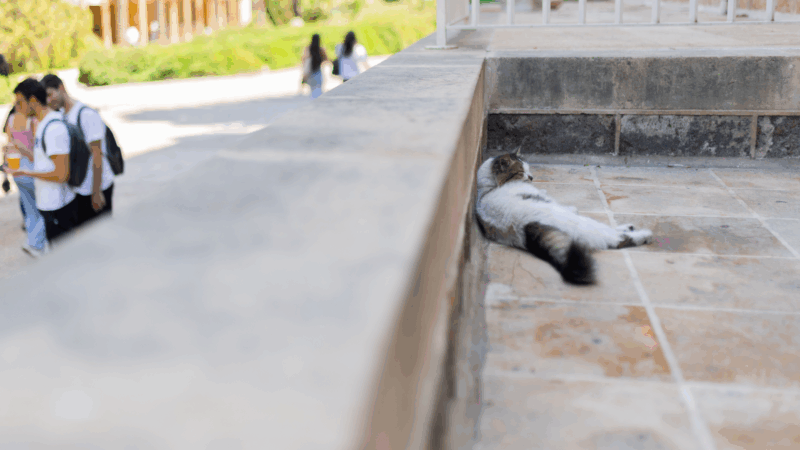Nearly 300 scientists apply for French academic program amid Trump cuts in U.S.
A French university courting U.S.-based academics said it has already received nearly 300 applications for researchers seeking “refugee status” amid President Trump’s elimination of funding for several scientific programs.
Last month, Aix-Marseille University, one of the country’s oldest and largest universities, announced it was accepting applications for its Safe Place For Science program, which it said offers “a safe and stimulating environment for scientists wishing to pursue their research in complete freedom.”
This week, Aix-Marseille said it had received 298 applications, and 242 of them are eligible and currently up for review. Of the eligible applicants, 135 are American, 45 have a dual nationality, 17 are French and 45 are from other countries, the university said.
“I am pleased that this request for the creation of scientific refugee status has found both media and political traction,” university President Éric Berton said in a statement.
The public research university said there is an even split between male and female applicants, with backgrounds from various prestigious U.S. institutions including Johns Hopkins University, NASA, the University of Pennsylvania, Columbia, Yale and Stanford. About 20 Americans will be accepted into the program to begin in June.
“We at Aix-Marseille University are convinced that mobilization to address the challenges facing scientific research must be collective in France and Europe,” Berton said.
The Trump administration has prioritized aggressive spending cuts and federal workforce reduction, leading to a battle for America’s best and brightest.
Already, for example, universities and medical research facilities are set to lose billions in federal funding under the National Institutes of Health. And rollbacks on federal diversity, equity and inclusion programs have compromised research ranging from climate change to biomedical research.
Aix-Marseille is not the only European institution hoping to capitalize on America’s brain drain.
Last month, France’s CentraleSupélec announced a $3.2 million grant to help finance American research that had been halted in the states. And Netherlands Minister of Education, Culture and Science Eppo Bruins wrote in a letter to parliament that he requested to set up a fund aimed at bringing top international scientists to the Netherlands.
There is some evidence that these entreaties are reaching curious ears.
Last month in the journal Nature, more than 1,200 respondents identifying as scientists cited Trump’s funding cuts as reasons they were considering moving to Canada or Europe.
Discussion boards reviewed by NPR show academics reaching the same conclusions.
Malinowski concedes to Mejia in Democratic House special primary in New Jersey
With the race still too close to call, former congressman Tom Malinowski conceded to challenger Analilia Mejia in a Democratic primary to replace the seat vacated by New Jersey Gov. Mikie Sherrill.
FBI release photos and video of potential suspect in Guthrie disappearance
An armed, masked subject was caught on Nancy Guthrie's front doorbell camera one the morning she disappeared.
Reporter’s notebook: A Dutch speedskater and a U.S. influencer walk into a bar …
NPR's Rachel Treisman took a pause from watching figure skaters break records to see speed skaters break records. Plus, the surreal experience of watching backflip artist Ilia Malinin.
In Beirut, Lebanon’s cats of war find peace on university campus
The American University of Beirut has long been a haven for cats abandoned in times if war or crisis, but in recent years the feline population has grown dramatically.
Judge rules 7-foot center Charles Bediako is no longer eligible to play for Alabama
Bediako was playing under a temporary restraining order that allowed the former NBA G League player to join Alabama in the middle of the season despite questions regarding his collegiate eligibility.
American Ben Ogden wins silver, breaking 50 year medal drought for U.S. men’s cross-country skiing
Ben Ogden of Vermont skied powerfully, finishing just behind Johannes Hoesflot Klaebo of Norway. It was the first Olympic medal for a U.S. men's cross-country skier since 1976.






